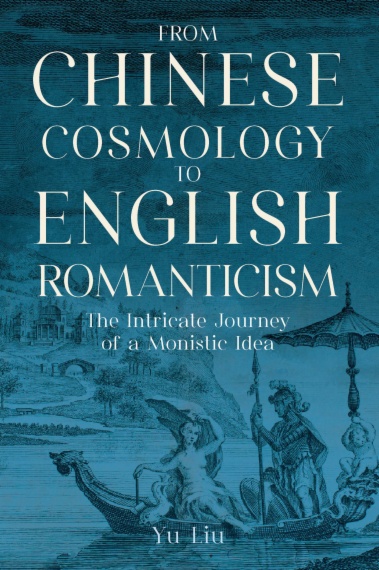A culturally sensitive and rewarding new understanding of the cross-cultural interaction between China and Europe
In this important new work author Yu Liu argues that, confined by a narrow English and European conceptual framework, scholars have so far obscured the radical innovation and revolutionary implication of Samuel Taylor Coleridge and William Wordsworth's monistic philosophy. Liu's innovative intellectual history traces the organic westward movement of the Chinese concept of tianren heyi, or humanity's unity with heaven. This monistic idea enters the European imaginary through Jesuit missionary Matteo Ricci's understanding of Chinese culture, travels through Spinoza's identification of God with nature, becomes ingrained in eighteenth-century English thought via the langscaping theory and practice of William Kent and Horace Walpole, and emerges in the poetry and thought of Coleridge and Wordsworth. In addition to presenting a significantly different reading of the two English poets, Liu contributes to scholarship about English literary history, history of European philosophy and religion, English garden history, and cross-cultural interactions between China and Europe in the sixteenth, seventeenth, and eighteenth centuries.
- Cover�������������������������������
- From Chinese Cosmology to English Romanticism�������������������������������������������������������������������������������������������������������������������������������������������������������
- Title�������������������������������
- Copyright�������������������������������������������
- CONTENTS
- List of Illustrations�������������������������������������������������������������������������������
- Series Editor’s Preface�������������������������������������������������������������������������������������
- Acknowledgments�������������������������������������������������������������
- Introduction: A Distinct Type of Cross-cultural Interaction and Influence�������������������������������������������������������������������������������������������������������������������������������������������������������������������������������������������������������������������������������������������
- PART 1. By Chance or Design: The Detectable Route of Philosophical Transmission
- CHAPTER 1 Behind the Book Cover: The Real Fight and Legacy of the Chinese Rites Controversy
- CHAPTER 2 The Uncanny Resemblance: A Telltale Clue to the Unusual Cosmology of Spinoza
- PART 2. For Pride or Prejudice: The Hitherto Unrecognized Route of Aesthetic Transmission
- CHAPTER 3 From Regularity to Irregularity: The Landscaping Innovation of William Kent
- CHAPTER 4 Changing What Is Foreign into What Is Native: The Horticultural Nationalism of Horace Walpole
- PART 3. To Accept or Reject: The History-Making Choices in English Romanticism
- CHAPTER 5 The Intrigue of Both Attraction and Repulsion: Coleridge, Spinoza, and China
- CHAPTER 6 The Inspiration of an Originally Chinese Idea: The Conceptual Innovation of Wordsworth in The Ruined Cottage
- Notes�������������������������������
- Bibliography����������������������������������������������������
- Index�������������������������������

